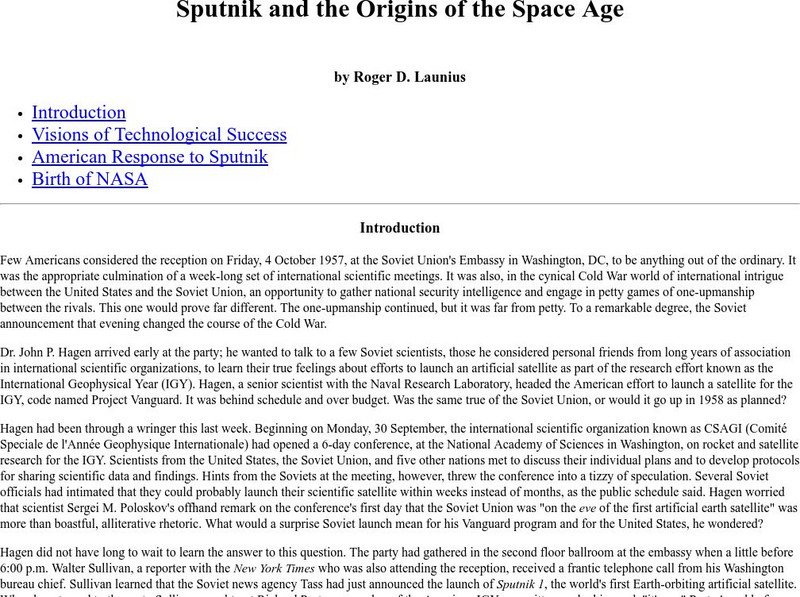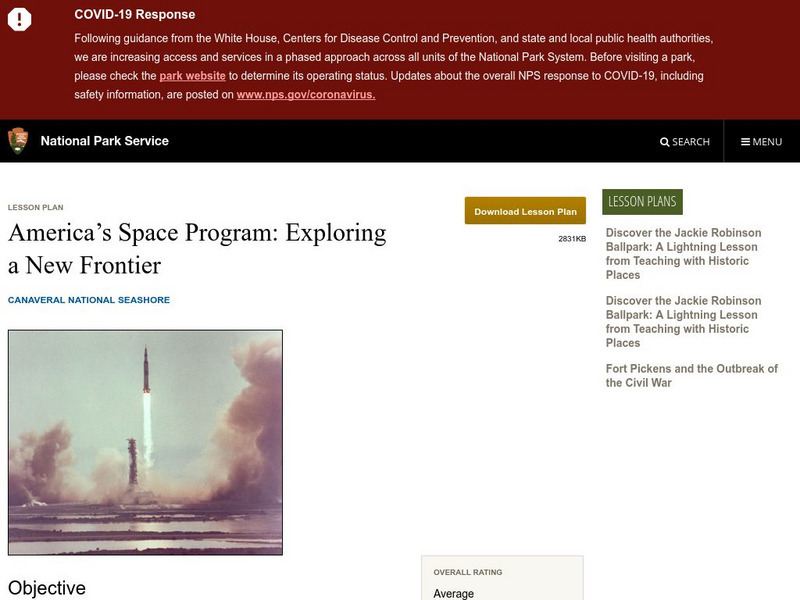Hi, what do you want to do?
Curated OER
Roman Art, Architecture, and Engineering
There is no better tool to help you explain art or architecture than an image-filled slide show. Classic Greek art, architecture, and engineering are all described with excellent visual examples and text which defines each form by its...
Curated OER
Brief Encounter (Looking at Ourselves and Others)
Students participate in a simulation game in which they realize what it is like to be from another culture. They observe and describe different behaviors. They also examine values from other cultures.
Curated OER
Chapter 10: Racial and Ethnic Relations
In this racial and ethnic relations in America worksheet, students answer 15 matching questions and respond to 7 short answer questions regarding various racial and ethnic groups terms and issues in U.S. society.
Curated OER
Newton's Laws and Forces
For this Newton's laws and forces worksheet, students answer 11 questions about inertia, vectors, force, and acceleration using Newton's laws. They also answer 3 questions about classification of species.
Other
The Space Race
Although the space race was originally a competition between two Cold War foes,it ultimately resulted in many benefits for the people of the Earth. Find information on the Mercury, Gemini, and Apollo, and Soviet space programs,...
Digital History
Digital History: The Space Race
In October 1957, the Soviet Union launched Sputnik 1, the world's first artificial satellite. The 184-pound, 22.5-inch sphere orbited the earth once every 96 minutes. Sputnik transmitted radio signals for 21 days and later burned up in...
TED Talks
Ted: Ted Ed: Who Won the Space Race?
Jeff Steers describes the history and benefits of the space race between the United States and the Soviet Union. [4:47]
CommonLit
Common Lit: The Space Race Is Over
A learning module that begins with "The Space Race Is Over" by Paul Kingsnorth, accompanied by guided reading questions, assessment questions, and discussion questions. The text can be printed as a PDF or assigned online through free...
White House Historical Association
White House Historical Association: John F. Kennedy and the Space Race
A look at John F. Kennedy's goal for the United States, which was to send the first man to the Moon and to bring him safely back to Earth. Informational text and lesson plan for learners in grades 9-12.
Digital Public Library of America
Dpla: Space Race
This set focuses on the Space Race during the mid-1950s and 1960s and examines the impact of the Space Race today. Includes a teacher's guide.
Khan Academy
Khan Academy: The Start of the Space Race
Looks at the USSR's launch of Sputnik and the galvanizing effect it had on America's motivation to fund aerospace research. NASA was soon formed and more funding was put in place for public education in the sciences and math.
Khan Academy
Khan Academy: Us History: 1945 1980: The Start of the Space Race
Learn about the launch of Sputnik and the establishment of NASA.
NASA
Nasa: Sputnik and the Dawn of the Space Age
This site from NASA describes the impact that Sputnik had in triggering the space race.
Siteseen
Siteseen: American Historama: The Space Race
Provides interesting facts and an overview of the Cold War Space Race (1957-1975), a competition in the exploration of space between the United States and the Soviet Union.
Smithsonian Institution
Smithsonian Education: Walk on the Moon
This online lesson helps students explore primary sources, including photographs and audio and video recordings, in order to learn about the Apollo crew and spacecraft, the history of the space race, and the incredible technological...
Georgia Department of Education
Ga Virtual Learning: Contemporary Nonfiction: Jfk Speech
This lesson focuses on John F. Kennedy's speech, "We Choose to go to the Moon," delivered at Rice University on September 12, 1962. It features links to JFK's biography and Wikipedia entry, the National Geographic: "Moon 101" video, the...
US National Archives
Docsteach: Landing a Man on the Moon: President Nixon and the Apollo Program
This activity chronicles the Space Race from President Kennedy's call to land on the Moon until Apollo 17 - the last lunar Mission, placing particular emphasis on President Nixon's role in the space program.
A&E Television
History.com: The Soviet Response to the Moon Landing? Denial There Was a Moon Race at All
Until 1989, Russians claimed they were not trying to reach the Moon first and that the U.S. was in "a one-nation race." Until 1989, a group of American aerospace engineers went to Moscow and finally saw the Soviets' failed lunar-landing...
NASA
Nasa: Sputnik and the Origins of the Space Age
NASA provides a paper providing a background to the Sputnik launch and the U.S. response.
Digital Public Library of America
Dpla: Race to the Moon
In 1955, the US and the USSR each announced plans to launch a satellite into orbit. Thus began the race to the moon. Throughout the 1960s and 1970s, the American space program and its new classes of astronauts achieved breakthroughs in...
Smithsonian Institution
Smithsonian Education: Apollo 11 Walking on the Moon
Check out this interactive website about the space race.
Ducksters
Ducksters: The Cold War for Kids: Space Race
Kids learn the history of the Space Race during the Cold War. A race between the United States and the Soviet Union to put a man on the Moon.
A&E Television
History.com: The Space Race: Interactive Universe
A virtual journey through space offers photos and facts about Earth and its neighboring planets, comets, other celestial bodies of the Solar System, and the Milky Way and Andromeda galaxies.
Curated OER
National Park Service: America's Space Program Exploring a New Frontier
This site includes a lesson for teachers to use when teaching about America's space program. Also included is the history of the space program, maps, readings, images of the space program, and benefits that resulted from space research.























